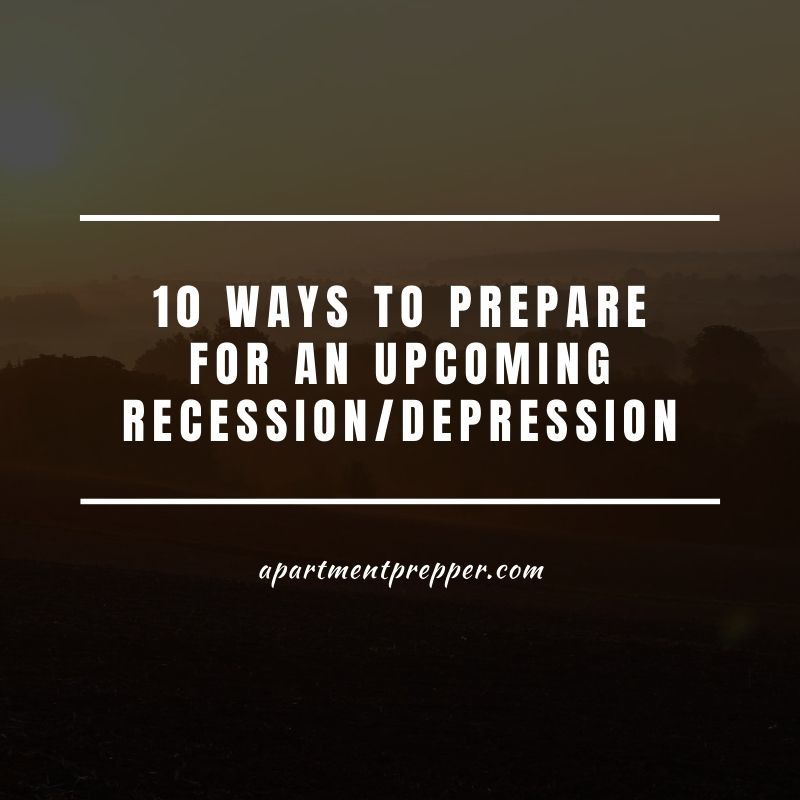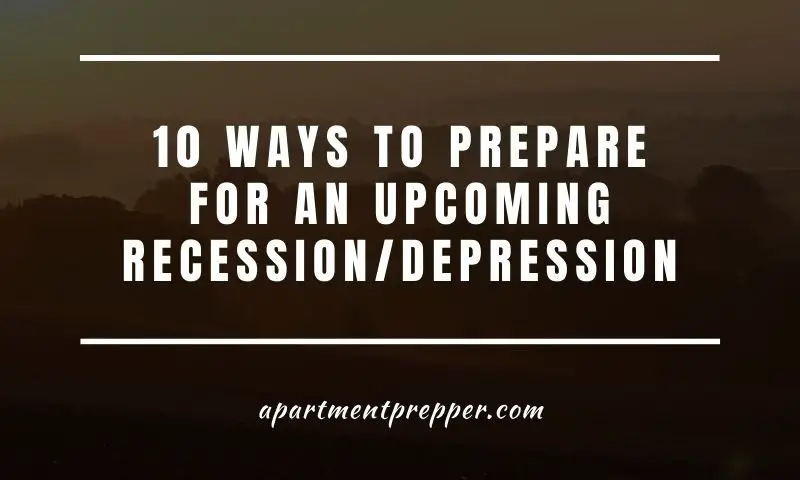We are getting a wake-up call as a nation and a world right now. Many of us are experiencing a new kind of reality at the moment. Some of us are working at home. Some of us are still working away from home. Some of us are not working, not getting paid, and aren’t sure when we will be again.Some of us still remember the recession and dot com bubble from 2008-2009 that hurt many people. People lost their homes on shady mortgage deals and no income. Small businesses collapsed due to a lack of work. Construction companies went belly up when the home building came to a halt. A lot of people were hurt when that happened.
That kind of reality is scary. You are not sure what you should do and can do right at the moment except hunker down at home and hope you don’t run out of money. You need to keep a roof over your head, water running, and the power on, but you need money for all of that. Some people already struggle with this. However, with the current situation that we are in, times are going to get worse.
The coronavirus pandemic is causing some major economic problems. Stock markets are crashing even with the little bit of good news they can get. Crude oil is under $30 a barrel as of the time of this post. Businesses are temporarily closing now. Small businesses are definitely taking a hit when they can’t really afford to. The Federal Reserve is printing more money with no support. The government is trying to pass a relief bill to send out money while the government has no money.
We are headed towards a recession at a minimum. Depression isn’t too far away.
You can weather an economic downturn, but you need to be willing to do the work that it takes and be flexible. You really need to get your ducks in a row so to speak. How can you do that?
You basically need to get your life together, your finances in good shape, and be doing what you can now to weather what is coming ahead. This can be really tough for some of us right now with the current coronavirus pandemic. You may already be home living off your stockpiles and with less pay than you normally bring home. There is still a lot you can do though.
10 Ways To Prepare For An Upcoming Recession/Depression
1. Get your financial house in order.
You should be trying to pay off any debts you have. You should be limiting or completely stopping any unnecessary spending. You will need a lot of self-discipline to get your financial house in order and stay clean. You may be home a lot more, but you do not need to be shopping online more to keep yourself entertained.
2. Get an emergency fund now.
Ideally, you should have three months’ worth of income in this fund, but that might not be attainable. Start at $500 and start saving more. Most financial advisors will tell you at least $1000 because that would cover a basic appliance replacement or a mechanical repair. However, you will want more money than that in case your hours are reduced or your job is cut.
3. Set a strict budget.
This has helped me through the leanest of times. You need to list everything you spend money on. Utilities, groceries, gas, cable/satellite/streaming, internet, phones, and more need to be written down. What can you live without? What do you need? If you are paying for cable/satellite and streaming, you probably don’t need both.
However, you decide to set up your budget, give every dollar a place. You will want to set your budget so your income exceeds your expenses, but even that leftover money needs to be designated to your savings. Some people have terrific luck with using a cash envelope system.
4. Stop wasting food.
In your budget, this is the single biggest waste of money. We throw out so much food. You can tackle this area in a myriad of ways:
- Making a meal plan ensures you have a plan for using up the food in your refrigerator.
- You can further reduce waste by only making just enough food for everyone being served.
- You can also make sure that leftovers are taken to work for lunches.
- You can repurpose leftovers into another meal.
- You can freeze leftovers to have at another time.
5. Start growing your own food.
You should start a garden. If your municipality allows or you live in the country, get some laying hens. Do what you can with what you have. You can grow food in containers, raised beds, old tires, in the ground and more. Just grow and supply yourself with your own food.
6. Be creative.
“Make do, do without, use it up and wear it out.” You should be learning how to fix your own things. With the plethora of information on the internet and YouTube videos, you can learn how to make, create, and fix anything. You can learn new skills to make your things last longer.
7. Keep your business local if at all possible.
When a recession hits, you do not want to watch your local businesses go under. These people are your friends and neighbors. They rely on those jobs to stay alive. Amazon and other online businesses are convenient, but your local economy depends on you and your business. Besides that, those local businesses will often go the extra mile for you in times of trouble.
8. Slowly keep adding to your food stockpiles and picking up other items.
Do not hoard, but be mindful of creating your own food security. When you start growing your own food, start preserving your own food too. However, this time of year is not ideal for most of us to start growing food outside.
In the meantime, keep adding rice, beans, sugar, honey, spices, and other lower-priced food to your food stockpiles. You can add an extra can or two to your stockpiles. Be mindful of others, but remember that you need to feed yourself and your family first.
Related post: 8 Ways To Quickly and Frugally Build Up Your Food Stockpiles and Pantry
9. Start eating less meat.
I do not and will never advocate a vegan diet, but you will save money by having a few meatless meals every week. Meat is expensive and will continue to rise in price. Unless you hunt or raise your own meat, you will be spending a good chunk of your grocery budget on meat. You can have a few meatless meals like rice and beans, pancakes/waffles, vegetable soup, no meat pasta dishes, egg bakes/frittatas/quiches, and more to stretch your grocery budget.
10. Develop and start side businesses now.
Having multiple streams of income can help you make extra money to pay off more debt and add to your savings now. In hard times, you can turn one of those streams into a full-time job if you need to. However, you need to get this started now so you are established when the hard times hit. You can also make a list of businesses you can do from home if you find yourself unemployed like child care, cleaning homes, handyman work, and more.
Hopefully, you have already gotten started on these things, but if you haven’t, you aren’t too late. Do what you can now to make life better for you later.
Thanks for reading,
Erica
About the author:
Erica N writes about preparedness, homesteading, frugality, parenting, and life in general in her blog, Living Life in Rural Iowa. A mom of four who has survived divorce, poverty, kids going to college, and teenagers! Always keen to learn more about what she writes about. She has written a book, The Prepper’s Yearbook, available now.

We are an affiliate of Amazon.com, which means we received a small commission if you click through one of our Amazon links when you shop, at totally no cost to you. This helps keep the lights on at the blog. Thanks!


Good information!
Thanks for sharing this information, I hope your article gets a lot of visitors
Wonderful text. Very useful and applicable. The great crisis has also affected car rental services, so small agencies (eg MMS car rental cars) are struggling to survive.